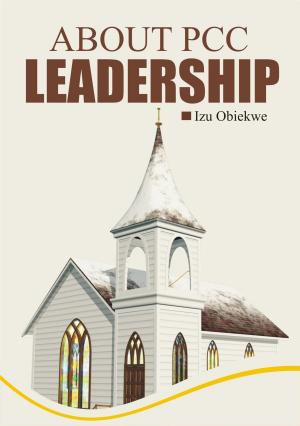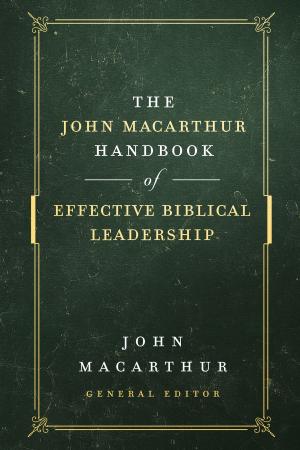Psycho-Heresy: Christianizing Pagan Psychologies
Nonfiction, Religion & Spirituality, Inspiration & Meditation, Pastoral Counseling, Christianity, Church, Pastoral Ministry| Author: | Dr. Robert E. Fugate | ISBN: | 9780984742226 |
| Publisher: | Dr. Robert E. Fugate | Publication: | November 19, 2014 |
| Imprint: | Smashwords Edition | Language: | English |
| Author: | Dr. Robert E. Fugate |
| ISBN: | 9780984742226 |
| Publisher: | Dr. Robert E. Fugate |
| Publication: | November 19, 2014 |
| Imprint: | Smashwords Edition |
| Language: | English |
Almost all American evangelical colleges and seminaries have embraced some form of the 400+ conflicting psychological therapies and 10,000+ conflicting psycho-therapeutic techniques. Psychotherapists comprise the pastoral departments of most major, conservative seminaries. Consequently, much contemporary evangelical preaching and most pastoral counseling are dominated by psychological themes, such as: self-esteem; the meeting of psychological “needs”; the gospel as unconditional and undemanding love; inner healing and self-love as the keys to personal transformation. Many healing and prayer ministries focus on the healing of memories and freeing from addictions and codependencies.
Dr. Robert Fugate’s book, Psycho-Heresy: Christianizing Pagan Psychologies freshly examines the question, Can psychological counseling be Christian counseling? This book is unique in its analysis of contemporary “Christian” counseling from the perspective of worldviews and their underlying presuppositions.
The first section concisely presents the Biblical worldview—including a Biblical theory of knowledge (i.e., epistemology) and the philosophical impossibility of science arriving at truth (since it is based upon an epistemology of empiricism and probabilistic inductive reasoning).
The second section presents key areas of systematic theology that are appealed to by Christian integrationist counselors (such as the nature of man and general and special revelation). Since one of the main gurus of the Christian counseling movement adamantly rejects the gospel of “Lordship salvation” (which requires repentance from sin), a Biblical examination of this topic is also included. Other topics addressed include the confession of sin, the nature of saving faith, and growing in sanctification.
On this basis of the Biblical worldview and sound systematic theology, the third section examines the roots, teachings, claims, and practices of evangelical integrationist counseling (which attempts to synthesize psychology and the Bible). This examination includes pervasive psychological themes, such as: unconditional love; self-esteem; inner healing/the healing of memories; and codependencies. At every point psychological counseling is weighed against the infallible and sufficient teaching of Scripture. The prevalent misuse of Bible verses and the use of Biblical words with unbiblical definitions are dealt with head on. Dr. Fugate even addresses the danger of psychiatry being used by a tyrannical state, offering poignant historical examples.
Endorsements:
“In 1970 Jay Adams published Competent to Counsel, which grounded counseling in the Scriptures. Today, I lament the relegation of his and others’ Biblical counseling to the sidelines of evangelical and Reformed Christianity. My heart aches for those thousands of Christians who have received essentially pagan counseling since that time.
Robert Fugate’s Psycho-Heresy: Christianizing Pagan Psychologies is the Biblical and philosophical capstone to Biblical counseling. He clearly demonstrates the antithesis of pagan psychologies over against Biblical truth. Such systems are grounded in epistemologies and ontologies that hate God…
My hope is that Fugate’s book will get the attention of, and then convince, those Christians who have bought the lies of pagan psychology. Such change can only advance the Kingdom of our Lord Jesus Christ, whereas uncritical counseling is destructive to that end.”
Franklin Ed Payne, MD
Physician, Professor, Author of several books and numerous journal articles on Biblical ethics in medicine; PCA elder
“Few people seem to realize the enormous danger facing the church when pastors preach and counsel from a psychological worldview. … Dr. Fugate’s book is a particularly helpful critique in that it analyzes the unbiblical presuppositions and worldview that undergird so-called ‘Christian counseling.’ This makes the book a must-read book.”
Rev Phillip Kayser, PhD
Pastor, Professor, Author, Missionary
Almost all American evangelical colleges and seminaries have embraced some form of the 400+ conflicting psychological therapies and 10,000+ conflicting psycho-therapeutic techniques. Psychotherapists comprise the pastoral departments of most major, conservative seminaries. Consequently, much contemporary evangelical preaching and most pastoral counseling are dominated by psychological themes, such as: self-esteem; the meeting of psychological “needs”; the gospel as unconditional and undemanding love; inner healing and self-love as the keys to personal transformation. Many healing and prayer ministries focus on the healing of memories and freeing from addictions and codependencies.
Dr. Robert Fugate’s book, Psycho-Heresy: Christianizing Pagan Psychologies freshly examines the question, Can psychological counseling be Christian counseling? This book is unique in its analysis of contemporary “Christian” counseling from the perspective of worldviews and their underlying presuppositions.
The first section concisely presents the Biblical worldview—including a Biblical theory of knowledge (i.e., epistemology) and the philosophical impossibility of science arriving at truth (since it is based upon an epistemology of empiricism and probabilistic inductive reasoning).
The second section presents key areas of systematic theology that are appealed to by Christian integrationist counselors (such as the nature of man and general and special revelation). Since one of the main gurus of the Christian counseling movement adamantly rejects the gospel of “Lordship salvation” (which requires repentance from sin), a Biblical examination of this topic is also included. Other topics addressed include the confession of sin, the nature of saving faith, and growing in sanctification.
On this basis of the Biblical worldview and sound systematic theology, the third section examines the roots, teachings, claims, and practices of evangelical integrationist counseling (which attempts to synthesize psychology and the Bible). This examination includes pervasive psychological themes, such as: unconditional love; self-esteem; inner healing/the healing of memories; and codependencies. At every point psychological counseling is weighed against the infallible and sufficient teaching of Scripture. The prevalent misuse of Bible verses and the use of Biblical words with unbiblical definitions are dealt with head on. Dr. Fugate even addresses the danger of psychiatry being used by a tyrannical state, offering poignant historical examples.
Endorsements:
“In 1970 Jay Adams published Competent to Counsel, which grounded counseling in the Scriptures. Today, I lament the relegation of his and others’ Biblical counseling to the sidelines of evangelical and Reformed Christianity. My heart aches for those thousands of Christians who have received essentially pagan counseling since that time.
Robert Fugate’s Psycho-Heresy: Christianizing Pagan Psychologies is the Biblical and philosophical capstone to Biblical counseling. He clearly demonstrates the antithesis of pagan psychologies over against Biblical truth. Such systems are grounded in epistemologies and ontologies that hate God…
My hope is that Fugate’s book will get the attention of, and then convince, those Christians who have bought the lies of pagan psychology. Such change can only advance the Kingdom of our Lord Jesus Christ, whereas uncritical counseling is destructive to that end.”
Franklin Ed Payne, MD
Physician, Professor, Author of several books and numerous journal articles on Biblical ethics in medicine; PCA elder
“Few people seem to realize the enormous danger facing the church when pastors preach and counsel from a psychological worldview. … Dr. Fugate’s book is a particularly helpful critique in that it analyzes the unbiblical presuppositions and worldview that undergird so-called ‘Christian counseling.’ This makes the book a must-read book.”
Rev Phillip Kayser, PhD
Pastor, Professor, Author, Missionary















